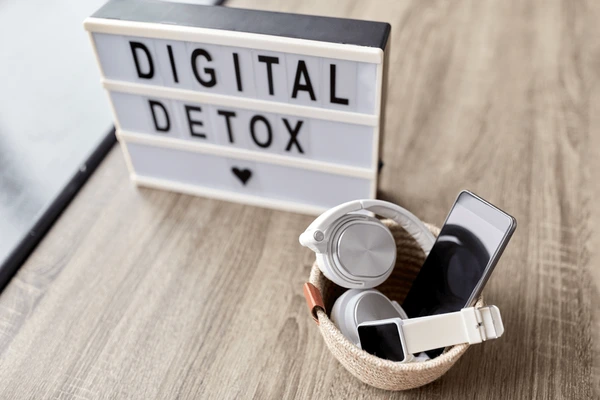We’re letting you know that this post contains sponsored links which Your Savvy Purse receives compensation for, which may impact their order of appearance.
In today’s fast-paced, hyper-connected world, the need for a digital detox has never been more urgent. Our screens dominate our daily lives, pulling us into a vortex of endless notifications, information overload, and digital distractions that can compromise our mental health. It’s time to reclaim our time and sanity by embracing a digital detox—a conscious effort to step back from our devices and cultivate a healthier relationship with technology. This is not just a suggestion; it’s a necessary intervention for our collective well-being.
Why Digital Detox?
Research increasingly demonstrates the link between excessive screen time and a range of mental health issues, including anxiety, depression, and sleep disturbances. The constant barrage of social media comparisons, news cycles, and emails can create a stress-laden environment that detracts from our focus and sense of peace. By advocating for a digital detox, we can prioritise our mental health, enhance our productivity, and foster deeper connections with ourselves and those around us.

Strategies for Reducing Screen Time
- Set Boundaries: Establish specific times for technology use, such as designated ‘tech-free’ hours in your home or during meals. This simple practice allows you to be fully present in the moment, promoting meaningful interactions and mindfulness.
- Limit Social Media Exposure: Commit to a daily or weekly limit on social media usage. Consider deleting apps from your phone or using website blockers during peak times to reduce temptation. Remember, the world will still turn without constant updates!
- Engage in Offline Activities: Rediscover the joy of offline hobbies. Whether it’s reading a book, going for a walk, or engaging in creative pursuits like painting or gardening, finding activities that nourish your spirit can divert your attention away from screens.
- Mindfulness and Meditation: Incorporate mindfulness practices into your routine to help ground yourself. Techniques such as meditation, deep breathing, or yoga can serve as powerful tools for managing stress and reducing the urge to reach for your device.
- Check Your Notifications: Streamline your digital experience by turning off non-essential notifications. This act can drastically reduce the constant pull of your phone, allowing for a more focused and less distracted day.
- Digital Detox Days or Weeks: Schedule regular ‘digital detox’ days or weeks where you unplug completely or limit your use to essential functions. Use this time to reconnect with your surroundings, engage with loved ones, or pursue passions that often take a back seat to technology.
In conclusion, advocating for a digital detox is an essential step toward reclaiming our time, enhancing our mental well-being, and nurturing our relationships. Let’s raise awareness about the importance of reducing screen time, taking actionable steps to cultivate a balanced and fulfilling life. Together, we can empower one another to make conscious choices that prioritise our mental health and lead us towards a more engaged and vibrant existence. The time for change is now—commit to your digital detox today, and unlock the benefits of a life less dictated by screens!



